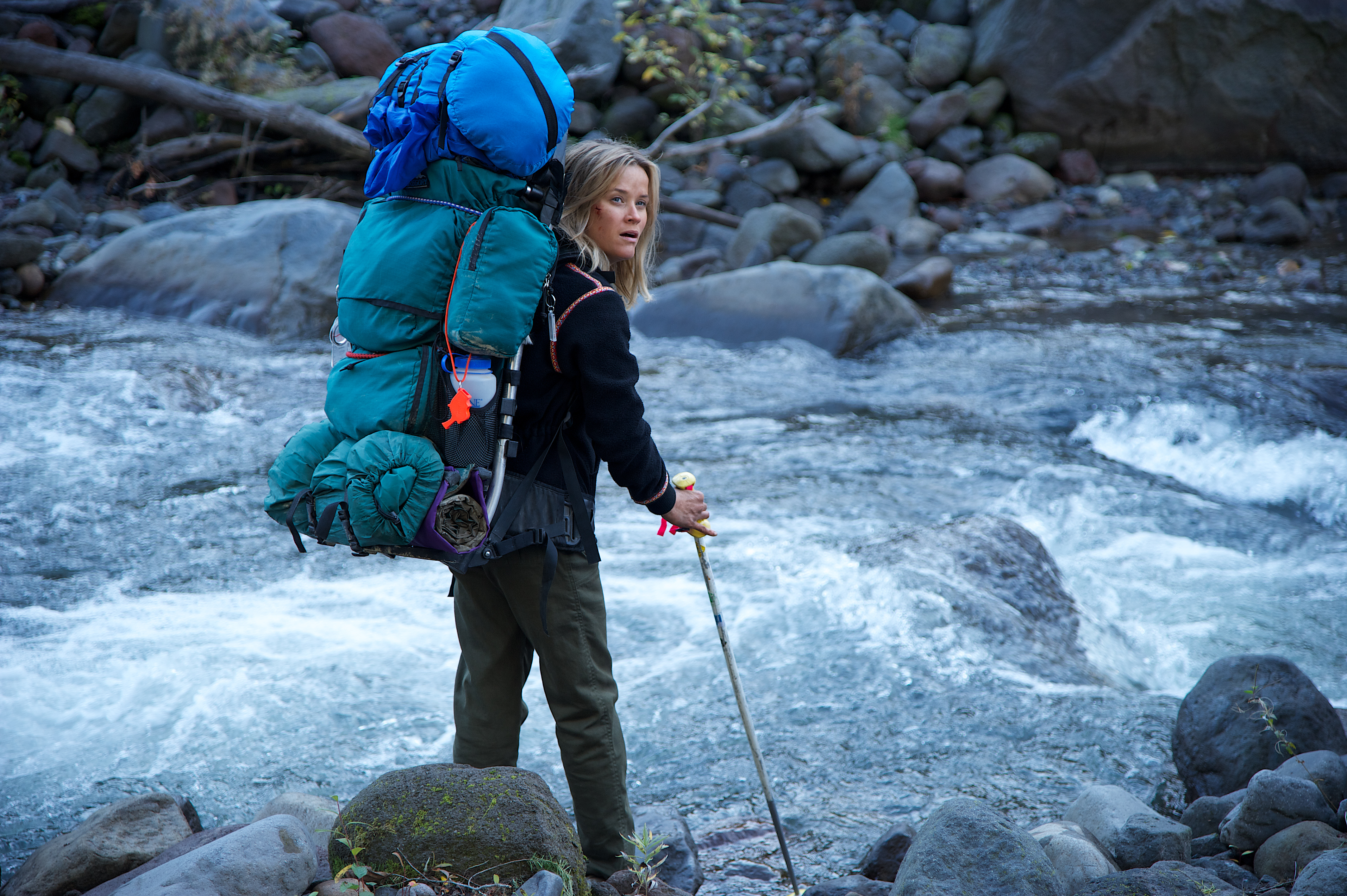Wild
Opens Fri., Dec. 12 at Guild 45th and other theaters. Rated R. 115 minutes.
This film was certain to be a success long before anyone saw Reese Witherspoon wrestling with her overstuffed beast of a blue backpack on the floor of a California motel room, preparing to hike 1,100 miles to Oregon. The scene’s a welcome moment of pure physical comedy, coming before the arduous trek up the Pacific Crest Trail that forms the emotional spine of Cheryl Strayed’s bestselling 2012 memoir. Witherspoon, as producer, quickly grabbed the rights to the book before its publication. Good call.
Though I have reservations about the fulsome emotional blasts of director Jean-Marc Vallee (like his Dallas Buyers Club), and though the adaptation by Nick Hornby (About a Boy, An Education) leans rather too hard on the death of Strayed’s mother, this is a movie that—like its solitary hiker heroine—cannot be stopped. (Witherspoon’s ironclad casting makes matters even more inevitable.) The audience, as they say, is built in from the book. Now based in Portland, Strayed extensively toured her memoir with as much determination as when she went for that 1995 trek. (She even has a small part in the movie.) Readers, predominately female, responded strongly to her humor, candor, and non-self-pitying pluck. Here is a woman who bottoms out—with men, drugs, and grief—then straightens out, even without disavowing all her past actions. Don’t mistake Wild for an easy, conventional healing narrative (though healing does of course come at the end). Rather, it’s more a coming-to-terms account. Or as our heroine puts it, “Problems don’t stay problems. They turn into something else”—in this case a book and surefire hit movie.
That process of transformation is related via interior monologue and near-continuous flashbacks (fluidly edited by Vallee and Martin Pensa), both to relieve the potential tedium for us and reflect Cheryl’s vagrant mental state. Wild is essentially a memory trip, presented non-sequentially, as Cheryl plods north. Various men figure in her past (including a brother), but none memorably. In the movie’s second half, more maudlin than its smart start, Wild is all about mommy—Bobbi (the typically committed Laura Dern, who should be in twice as many movies as she does today). As unlucky with men as her daughter is, she apparently ends up in college with Cheryl; then there’s something to do with a horse farm; then there’s cancer, which leads to the usual wailing-at-bedside scene. I guess this is the price (for Vallee, for Strayed) in working with A-listers who covet awards. (It worked for McConaughey—amirite, amirite?) Still, since Witherspoon already has her Oscar for Walk the Line, I wish Wild weren’t so full-frontal about everything. (Related: Witherspoon is fairly bold about showing her body here, though appropriately.)
Wild is both tremendously appealing and inescapably sappy, also attended by various spirit animals (horses for tragedy, a fox for hope). One of its best moments comes in the soggy Oregon rainforest, where Cheryl is serenaded by a little boy. After his party continues down the trail, she collapses to her knees, sobbing behind that giant pack full of burdensome memories. A better film would leave it there, but Vallee has to turn the camera around, so we can see those precious golden tears. Strayed, in her more astringent writing, wouldn’t be so indulgent, but such is the rocky path to cinematic redemption.
bmiller@seattleweekly.com








